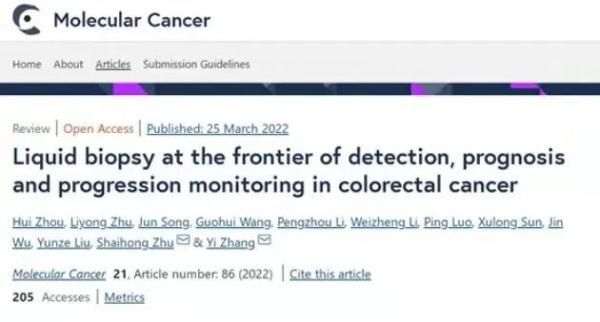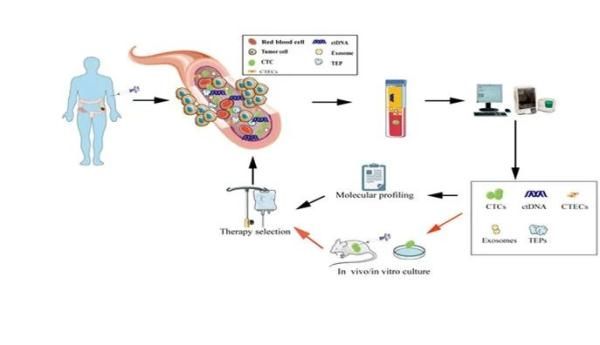Recently, the team of Zhu Sunhong and Zhu Liyong from the Department of Gastrointestinal Surgery II of the Third Xiangya Hospital of Central South University published their research results in Molecular Cancer, expounding the research progress and application potential of liquid biopsy technology in the diagnosis and treatment of colorectal cancer. Prof. Zhu Shaihong, Department of Gastrointestinal Surgery, The Third Xiangya Hospital, Central South University, and Prof. Zhang Yi, Xuzhou Medical University are the co-corresponding authors, Zhou Hui, associate professor Zhu Liyong, and Prof. Song Jun from Xuzhou Medical University are the co-authors of the paper. The first author, the Third Xiangya Hospital of Central South University is the first completion unit.

Professor Zhu Sunhong and Associate Professor Zhu Liyong, Department of Gastrointestinal Surgery II, Third Xiangya Hospital of Central South University, have been working on obesity for many years Working with metabolic diseases, gastrointestinal tumors and clinical translational medicine. Studies have found that obesity is a high risk factor for colorectal cancer. With the change of diet and the prevalence of obesity, the incidence of colorectal cancer is increasing day by day. It is of great clinical significance to deeply study its specific pathogenesis, therapeutic targets and early screening markers.
Liquid biopsy is a non-invasive blood test that detects circulating tumor cells (CTCs), circulating tumor DNA (ctDNA) fragments and exosomes released into the blood by tumors or metastases. It has important clinical application value in early screening, molecular typing, prognosis judgment, medication guidance and recurrence monitoring of colorectal cancer. In 2015, liquid biopsy technology was rated as one of the top ten breakthrough technologies of the year by MIT Technology Review.
The research results of the teams of Professor Zhu Sunhong and Associate Professor Zhu Liyong systematically expounded the research progress of liquid biopsy technology in colorectal tumor drug resistance, tumor metabolism and tumor immunity; further revealed that liquid biopsy technology plays an important role in colorectal cancer. The application potential of efficient and precise detection methods for early diagnosis, targeted therapy, and prognosis evaluation.

The picture shows the liquid biopsy process of colorectal cancer patients: separation and enrichment of liquid biopsy markers through blood samples, according to Its molecular properties to optimize the treatment of colorectal cancer
It is known that in the past few decades, circulating tumor cells (CTC), circulating tumor DNA (ctDNA), exosomes, tumor education platelets ( TEPs) have been discovered one after another and have made positive progress, opening the door to liquid biopsy. With the development of next-generation sequencing and detection methods (ddPCR, etc.), the separation and enrichment of liquid biopsy markers have also been improved, gradually moving from basic to clinical. In 2014, EU EMA approved ctDNA detection of EGFR mutation for molecular diagnosis of lung cancer Iressa targeted therapy, marking the official entry of ctDNA detection into clinical application. In China, various clinical trials of liquid biopsy are also in full swing. CTCs, ctDNA, exosomes, and TEPs can be used as key markers for early diagnosis of colorectal cancer, monitoring of treatment effects, and prediction of recurrence risk. Their specificity and sensitivity have surpassed traditional tumor markers such as CEA; (TMD) and tumor residual disease (MRD) monitoring provide great reference value for tumor immune and tumor metabolism therapy.
Article source | The Third Xiangya Hospital of Central South University
Source: Central South University